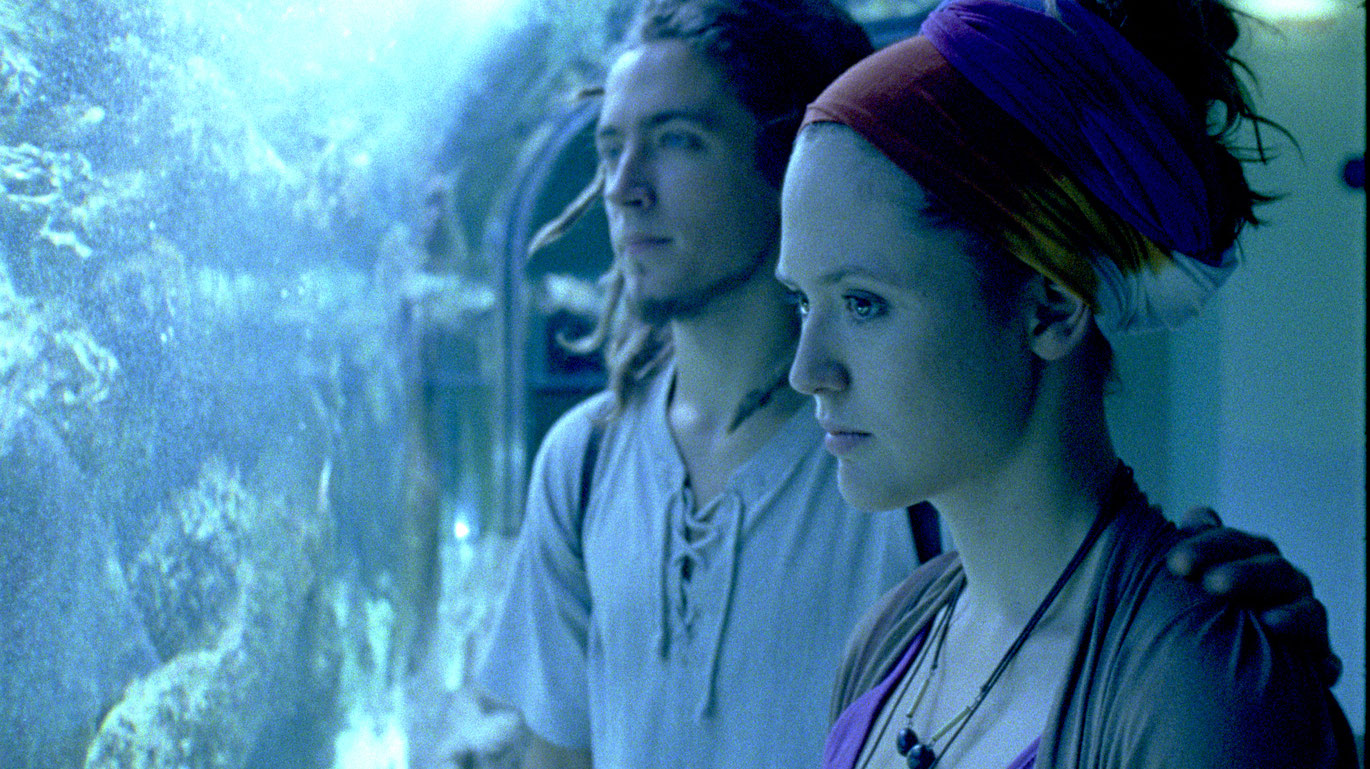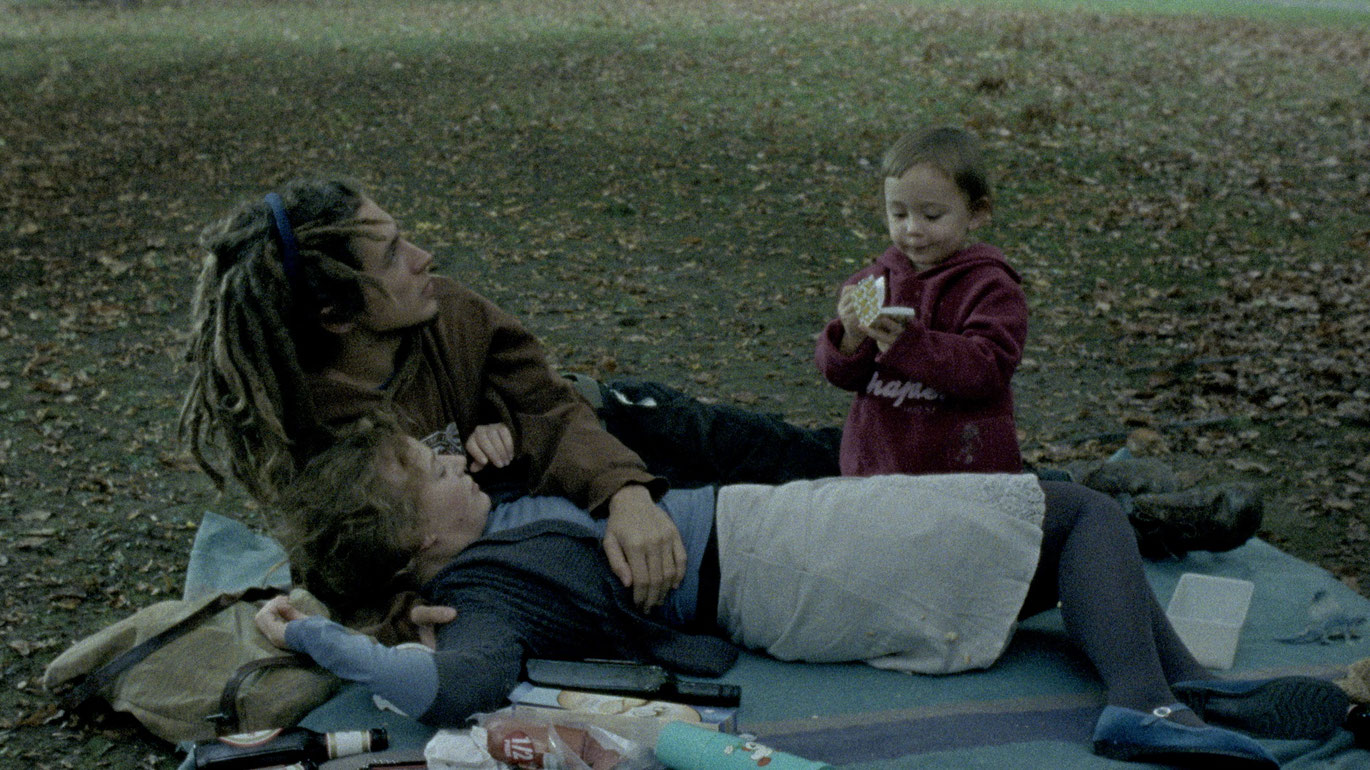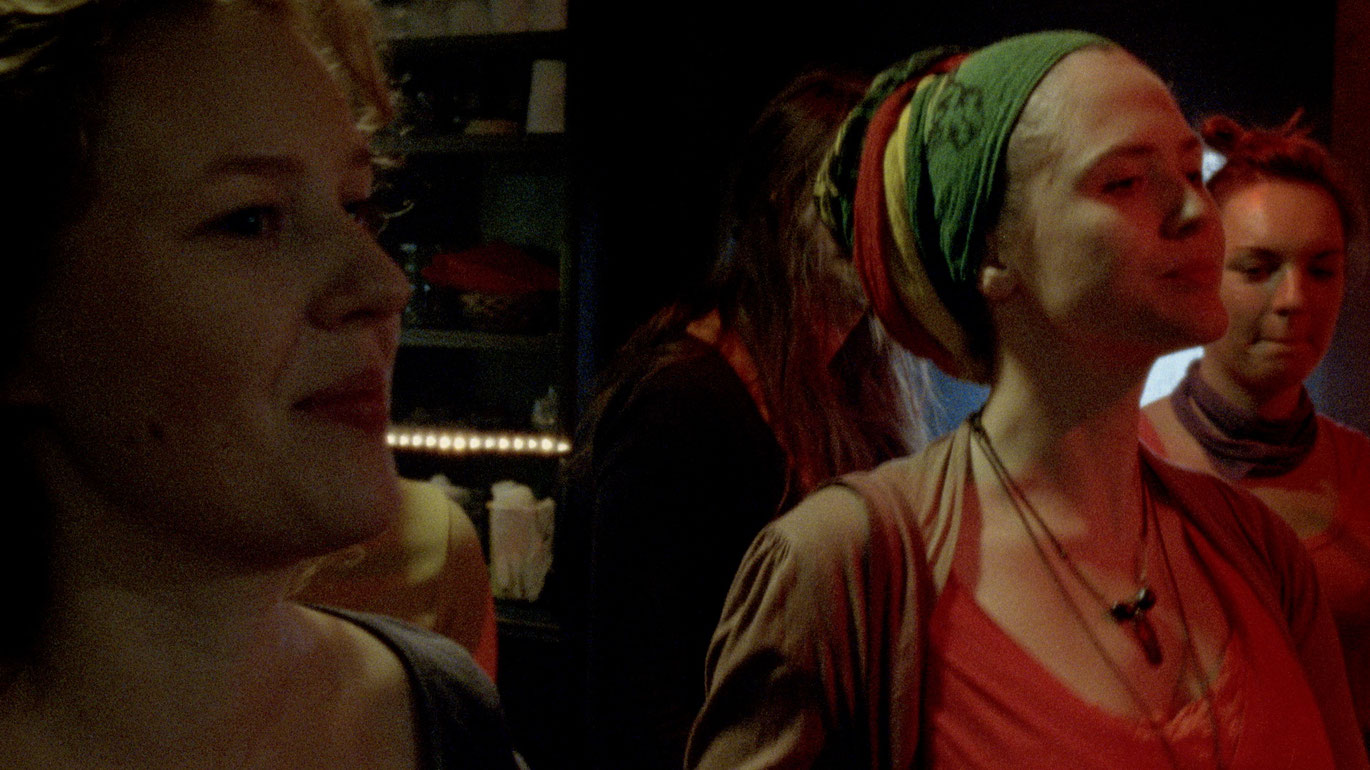One Song
Coni (Conrado Molina) hardly ever sleeps. a wagon pusher at a parcel service by day, musician by night, and a single father caring for a three-year-old daughter in between. At his poorly paid reggae gigs in little clubs, he is in beat, the rest of his life runs off-beat, at best. Muddling through is the rule of thumb for his life, and meanwhile he has gotten used to it. Things actually work out quite well until the moment the child’s mother (Emily Cox) suddenly appears after half a year and again takes up her place in the family triangle, whereby Coni—by now, halfway in a new relationship—entirely unravels in the mesh of half-hearted matters.
Film author Catalina Molina’s interest in precarious life styles condenses, like previously in Talleres Clandestinos, in characters driven by external economic situations, and plagued by short-term amorous entanglements. The subsequent white lies, displacements, and failing cell-phone connections guarantee permanent multitasking and give the impression of characters capable of acting, who in reality, simply fall from one unstable situation into the next. Terse dialogues clearly outline what remains unsaid; melodramatic potential is in the often strictly composed scenic concluding tableaus: Molina’s balancing act comprises remaining empathetic with her characters without sacrificing analytical precision. The persistent presence of the child (Namiya Ettl)—as a permanent third element—functions as a burning glass in this, which makes the network of non-binding elements visible as a “mad world. Unser Lied, “our song”—as a utopian code for togetherness—is only rudimentarily intoned and is audible mainly as alienation. Unser Leid, our suffering, however—everyone can tell you a thing or two about that.
(Michael Palm)
Translation: Lisa Rosenblatt
Unser Lied
2012
Austria
31 min 15 sec



